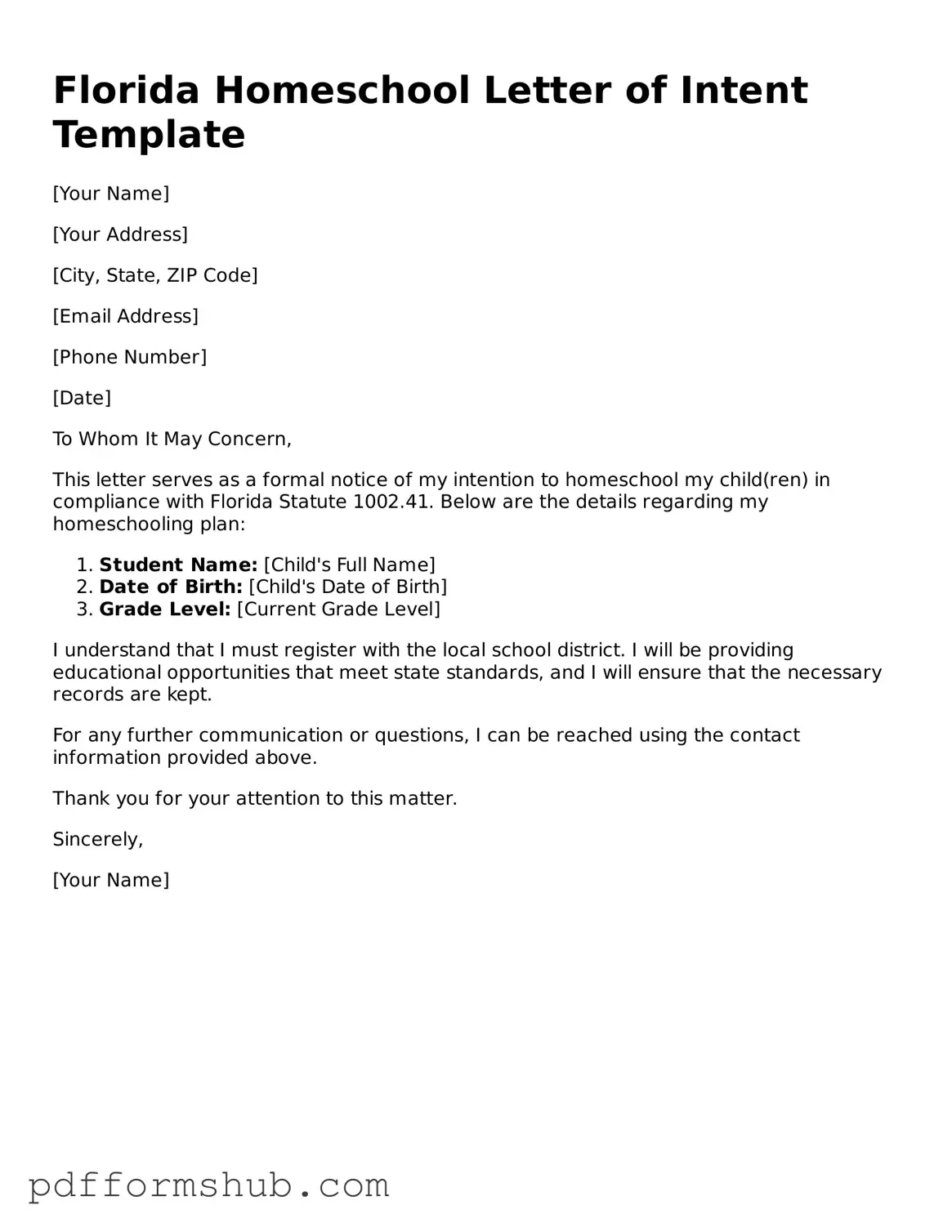Attorney-Verified Homeschool Letter of Intent Form for Florida State
The Florida Homeschool Letter of Intent form is a document that parents must submit to officially notify the local school district of their intention to homeschool their children. This form is a crucial first step in establishing a homeschooling program in Florida, ensuring compliance with state regulations. For those ready to begin their homeschooling journey, filling out this form is essential; click the button below to get started.
Customize Form

Attorney-Verified Homeschool Letter of Intent Form for Florida State
Customize Form

Customize Form
or
Free PDF Form
Short deadline? Complete this form now
Complete Homeschool Letter of Intent online without printing hassles.